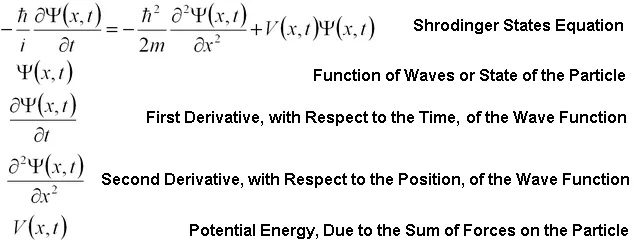Greetings, Steemians, Friends. I regret to start this article, with a lapidary and odious statement: "We all know that one day we will have to die (the Certainty), but nobody knows when that moment will be at which he will die (Uncertainty)".
The previous statement represents only an insignificant example of Certainty and Uncertainty that we all carry as a heavy burden throughout our lives and this has been the case during the long passage of the history of humanity.
In this sense, it is very difficult to explain, "to digest" or to accept this point to be treated, as human beings cling to certainty in almost all our walk on planet Earth, and we love to deny any bias of uncertainty that can appear in our lives; recreating the majority tendency of resistance to change, simply by being trapped in our well-known comfort schemes (Certainty that can even cause us harm, but we feel very comfortable accustomed to it) and we are terrified of the unknown (Uncertainty that could be a conditioned jump to improve our lives, but we have that fear of change and the unusual). A popular saying reads: "Better bad known than good to know"; gigantic error boosted in the "necessity" of certainty and the terror that produces the Uncertainty; and that fits very well with almost all human beings regardless of their intellectual level or the accumulated experiences.
In philosophical and psychological terms, there are many valuable and convincing explanations in the literature, and there are even cases of contradictory theses that are acceptable. Paradoxical? Not in any way. We must not forget that there is no chemically pure entity (element, molecule, substance, object or being), and this assertion also prevails in the field of ideas and theories; in fact, in Physics, Nobel Prizes have been awarded for contradictory theories (for example, the undulatory and corpuscular nature of light). Therefore, at the risk that you do not understand me friend reader (sometimes not even I understand myself), I will use numbers, formulations and complex ideas for the successive explanations on this topic.
In Classical Mechanics the "Certainty" in the movement of a body is governed by Newton's Second Law (F = m.a, force is equal to the product of the mass by its acceleration); therefore, knowing the exact initial state of an object and the forces that operate on it, we can predict with "Certainty" its future state (for example: initial position = 0, initial velocity = 0, mass = 1 kilogram, summation of forces = 1 Newton in the direction of the North Prediction after 1 second: acceleration = 1 meter per second squared, speed = 1 meter on a second or colloquially one meter per second, position = 0.5 meters towards the North. read carefully the results, think that there is an error and ask, how is it possible that its speed is one meter per second, but in a second barely runs half a meter, there is part of my initial explanation, certainty or uncertainty? to the approach, the speed is not constant, and during that second, the speed has changed from zero to 1 meter per second).
On the contrary, according to Quantum Mechanics and more specifically according to the Heisenberg Uncertainty Principle, it is not possible to simultaneously determine the position and velocity of a particle; that is, it is not possible to make an exact and complete prediction of its future state (it is difficult for me to put an example, but I will do the possible starting from the Schrodinger equation).

The Heisenberg Uncertainty principle establishes the impossibility that certain pairs of observable and complementary physical magnitudes are known with precision, that is, the position and quantity of momentum or linear movement of a given object can not be determined simultaneously (when determining the position). from a particular you can not know exactly its mass or its speed). This principle defines one of the fundamental differences between classical physics and quantum physics. The indetermination is expressed mathematically as: variation of p multiplied by the variation of x is greater than or equal to the Planck constant divided by 4pi (delta p by delta x> h / 12.56, delta is the variation of the final state minus the initial state, p = product of mass by velocity, x = position, Planck constant h = 6.63 by 10 raised to minus 34 Joules per second).
Calculations more, calculations less, it is inferred that the Uncertainty is part of our lives as is certainty, and in this reason things happen in a "natural way". So, what is the fear of coexisting simultaneously with Certainty and Uncertainty? Do not be afraid of change, it is something as natural as the stability that pleases you so much and you can live together at all times and places, to help you progress towards a more prosperous future. Conclusion: Be happy in any way and without fear of changes, the Numbers support you.